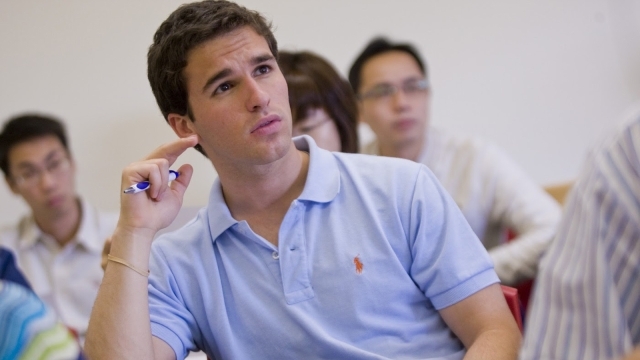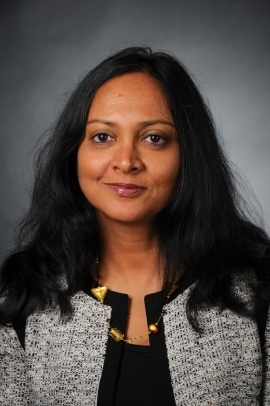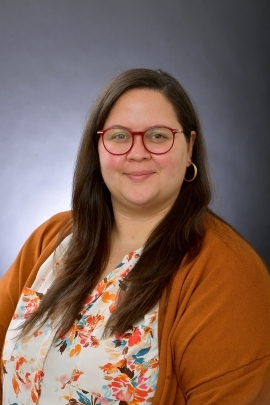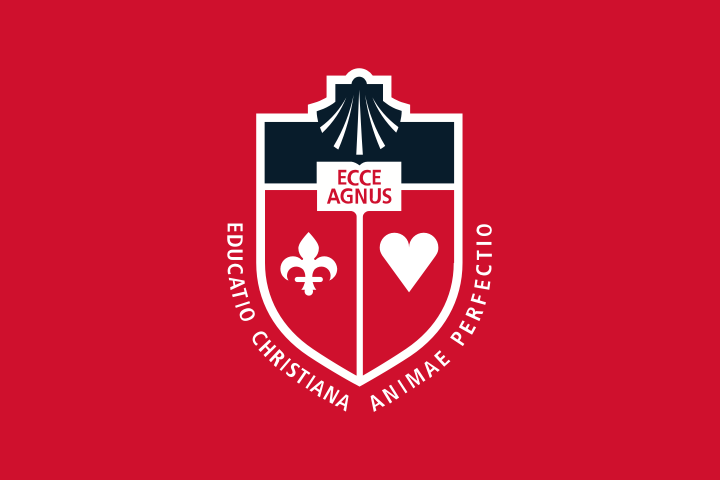

GR
Adolescent Education and Teaching Students with Disabilities (PreK-12), Master of Science in Education
The program is designed to foster the ability of teachers to develop the skills, attitudes, and abilities needed to identify and remediate major learning and behavior disorders, ranging from mild to profound, regardless of etiology.
- Home
- Academics
- Majors and Programs of Study
- Adolescent Education and Teaching Students with Disabilities (PreK-12), Master of Science in Education
- Degree Type
- MSEd
- Area of Interest
- Education
- Associated Colleges or Schools
- Program Location
- Queens Campus
- Required Credit Hours
- 39
Admission
Please view the School of Education Graduate Admission Application Requirements for detailed admission information.
Courses
EDU 3200 Language Acquisition and Literacy Development for General Education and English Language Learners (ELL) K-12 (20 hrs. field work)
EDU 3280 Digital Literacy and Learning
EDU 7000: Psychological Foundations of Education
EDU 7295: Teaching and Learning: Adolescent (20 Hrs. field work)
Choose One Of The Following: (Course must match your subject area concentration)
EDU 7291: Innovative Strategies in Secondary Education: Social Studies (20 hrs. field work)
or
EDU 7292 Innovative Strategies in Secondary Education: Science
or
EDU 7293: Innovative Strategies in Secondary Education: Math (20 Hrs. field work)
Note: For ELA and Foreign Language please consult your advisor
EDU 7117: Adolescent Education Associate Teaching (Student Teaching*)
*Must be taken in your second to last semester.
EDU 9709 Curriculum and Design, Differentiation and Accommodations for Diverse Learners PreK-12 (10 hrs fieldwork)
EDU 9711 Education and Accommodating Needs for Individuals with Exceptionalities K-12 (15 hrs field work)
EDU 9714 Evidence Based Approaches to Teaching Literacy to Individuals with Exceptionalities PreK – 12. (20 hrs field work))
EDU 9719 Principles of Applied Behavior Analysis and Positive Behavior Supports K-12 (15 hrs field work)
EDU 9721 Educational Assessment of Individuals with Exceptionalities Prek-12 (20 hrs field work))
EDU 9746 Curriculum and Instructional Design for Individuals with Exceptionalities: Math, Science, Social Studies PreK-12 (15 hrs field work)
EDU 9745 Practicum in Special Education: PreK-12 (150 hrs)
*Must be taken in your final semester. Must have completed EDU 7115, all Special Education Coursework and CST-Students with Disabilities.
These courses are considered outside your program of study.Special permission must be granted if taking these courses during current enrollment of adolescent and SWD program.
Students satisfying the 30 credits in a content area with a minimum grade of C, passing the CST content subject area will be eligible for certification, grades 7-9, in their content area.
EDU 7106: Understanding socio-emotional, cultural and cognitive aspects of middle school/adolescent learners in general and Inclusive settings
EDU 7107: Methods and strategies of teaching middle school/adolescent learners in general and Inclusive settings
The completion of the program qualifies students for New York State initial certification as a teacher of students with disabilities provided students have successfully completed all New York State mandated external tests, training modules, workshops, and teaching experiences. Students are required to complete 39 credits in total.
Gainful Employment Disclosures
This certificate program is approved as a Gainful Employment Program through the US Department of Education and is, therefore, eligible for Federal Student Aid. View Disclosure to learn about this program outcomes.
Top Outcomes for this particular program
The program is designed to foster the ability of teachers to develop the skills, attitudes, and abilities needed to identify and remediate major learning and behavior disorders, ranging from mild to profound, regardless of etiology. Attention is also paid to diagnosis, intervention, program planning and program evaluation.
The program prepares graduates to:
Demonstrate knowledge of human developmental processes, particularly related to the lifespan development
Understand a wide range of disabilities and how a student’s disability may impact high school services and post-school outcomes for adolescents
Identify students’ strengths and needs so as to individualize and modify instruction
Collaborate effectively with parents, educators, and related service providers
Create and implement educational programs for adolescents with disabilities using most current evidence-based practices and technology
Demonstrate knowledge of and competence in adapting curricula for students with disabilities in specific subject matters, such as, reading/language arts, math, social studies, and sciences
Assess and evaluate the development and implementation of effective strategies for children with learning and behavior challenges in the classroom setting
Use, interpret, and analyze various forms of assessment (formal, informal, formative, summative) to gather detailed information, from multiple sources, about student learning
Use the basic principles and strategies of the science of applied behavior analysis with students who have disabilities
Understand research in the broader context of special and inclusive education
Create safe, nurturing, inclusive, and individualized learning environments for student with disabilities, being mindful of how life experiences, culture, ethnicity shape and strengthen students are learners
Interpret and apply standards from the Council for Exceptional Children (CEC) and other relevant professional organizations
Top three features/qualities of our program:
Our full-time faculty is highly qualified with many years of experience working with individuals with disabilities, and their families, in diverse school and clinical settings, and is also actively engaged in research and professional service. Further, we have a strong supporting Adjunct faculty that brings unique practitioner input to our programs. To access information about our Faculty, please visit:
Our courses are offered on the Queens and with ample online course offerings. Online courses allow students to learn at their own pace and participate in interactive and creative online learning opportunities
Programs that offer multiple opportunities for engagement in professional activities, academic service learning, and global education consistent with the University’s Catholic and Vincentian mission. Our school’s mission of “Preparing teachers, counselors, and administrators as transformational leaders who honor the dignity of all people” guides our programs and informs our practice each day.
Why is the experience unique at St. John’s?
Our students complete 150 hours of supervised special education practicum in various settings including self-contained, inclusive, and mainstreamed classrooms. St. John’s program is unique in that it allows students to develop skills to teach exceptional students in schools, clinics, and early intervention settings. Students are exposed to instructors, current researchers, and leaders in the field of special education who have many years of experience and expertise working directly with children in diverse, multicultural, and high-needs urban and suburban school settings.
Our graduates are successful and highly proficient teachers trained to meet the highest professional standards in special education set by the Council for Exceptional Children (CEC), through rigorous course work based on evidence-based practices, applied observation and practicum experiences, and engagement in student activities, including academic service learning. We are excited to welcome you to join this cadre of effective teachers and global citizens effecting change in the lives of children and youth through education and service.
Our students participate in many online learning opportunities that allow for current and effective use of online resources for research and practice in special education and preparation for careers in an increasingly global and digital world
Our students engage in several professional and networking events throughout their program developing their competencies to effectively communicate and interact with stakeholders in collaborative and inclusive ways. Please visit our CEC Student Chapter page at cecatsju.weebly.com to learn more about the exciting opportunities for professional preparation and student engagement that we offer to our students as part of their overall experience in our Special Education program
Our Faculty
Faculty with extensive experience as school and community-based professionals are actively engaged in school-based research and service activities
Faculty regularly present at local, national, and international special education conferences
Faculty have published in highly regarded peer-reviewed education and special education journals including Review of Educational Research, Learning Disability Quarterly, Learning Disability Research & Practice, Behavior Modification, Preventing School Failure, Beyond Behavior, Intervention in School and Clinic, International Review of Research in MR, American Journal of Mental Retardation, Journal of Intellectual Disability Research, International Journal of Inclusive Education, and International Interdisciplinary Journal of Education



Program Contact
Federal Regulations require all higher education institutions offering an academic program designed to meet the educational requirements for a professional license or certification or advertised as such, to provide potential students with information about whether completion of that program would meet the educational requirements for licensure/certification in the state of the student’s location upon enrollment.
This program prepares students for licensure/certification in New York State. Students who plan to work in a state other than NY, must visit our Professional Licensure Disclosure Information page where we have indicated if this program meets or does not meet the educational requirements for specific states.
Interested in Education, but not sure if Adolescent Education and Teaching Students with Disabilities (PreK-12), Master of Science in Education is right for you?
Related Programs
GR
The doctoral degree in educational administration and supervision is an opportunity for educational leaders to enhance their knowledge and skills in research and current trends in education.
- Queens Campus
Dual
Today, teachers must be prepared to work in multicultural and linguistically diverse classrooms.
- Queens Campus
- Online
UG
Leads to initial certification to teach a specific content area in grades 7 through 12 in New York State.
- Queens Campus
GR
The Master of Science programs in Adolescent Education (Career Change) enable prospective teachers to acquire the skills they need in such areas as language acquisition and literacy, curriculum development, instructional planning, and more.
- Queens Campus
Dual
Today’s teachers must be prepared to teach literacy to a very diverse population of students. New York State recognizes the need for all teachers to be proficient in literacy instruction to meet the needs of all students.
- Queens Campus
GR
This program leads to bilingual certification for in-service teachers.
- Queens Campus
- Online
Dual
This five-year program is open to undergraduate education majors who achieve a 3.5 GPA and are willing to purse a more demanding and comprehensive program of study, and who, by virtue of their academic performance and interview with the faculty, are invited to participate in this unique B.S.Ed./M.S.Ed. program.
- Queens Campus
Dual
Today teachers must be prepared to work with students with diverse needs and abilities.
- Queens Campus
GR
The Childhood and Teaching Students with Disabilities (PreK-12), Master of Science in Education (Career Change) program is a program for college graduates seeking to become special education teachers.
- Queens Campus
UG
Leads to initial certification to teach grades 1 through 6 in New York State.
- Queens Campus
GR
The Master’s Degree Program in Childhood Education and TESOL is a unique, robust, specially designed 36 credit program intended for graduates from “non-education” programs who want to change their career path and fulfill their desire to become multiculturalist professional NY State certified TESOL teachers of English learners (PreK-12), or general classroom teachers in grades (K-6) with expertise and certification in TESOL, that is now required of all classroom teachers.
- Queens Campus
Dual
Today, teachers must be prepared to work in multicultural and linguistically diverse classrooms.
- Queens Campus
- Online
GR
The Master of Science program in Childhood Education (Career Change) advances the knowledge and experience of graduates in teaching elementary education. The program includes a range of relevant pedagogical methods for teaching and learning and strategies for devising, implementing and assessing learning experiences for all learners.
- Queens Campus
GR
Students who have completed a CACREP master’s degree in another counseling specialization, such as school counseling, can earn an Advanced Certificate in Clinical Mental Health Counseling (CMHC).
- Queens Campus
GR
The Clinical Mental Health Counseling Program is a 60-credit program leading to a Master of Science in Education degree.
- Queens Campus
GR
The Field Change and Career Change programs are intended to foster the development of skills, attitudes and knowledge needed to teach diverse populations of young children (birth to grade 2) across the full range of abilities.
- Queens Campus
GR
Redefine your path — become a certified early childhood educator and bring your expertise into the classroom
- Queens Campus
GR
Enhance your knowledge and skills in research and current trends in education with an M.B.A. concentrating on Educational Leadership from St. John's University.
- Queens Campus
- Manhattan Campus
- Online
GR
The advanced degree programs in instructional leadership have been designed to provide students with an intellectual environment that enables them to take leadership positions in the areas of curriculum, learning and instruction.
- Queens Campus
GR
This fully online program provides students with an intellectual environment to refine existing knowledge and develop new knowledge, practices and skills in higher education policy, student development theory and educational leadership.
- Online
GR
Our vision in the PhD Literacy program is to create an academic community of literacy practitioners and leaders who intend to address real-life social problems through scholarship. The program is designed to develop research skills applied in the field of literacy to learn about the role of reading and writing in schools and everyday life.
- Online
GR
Extensions are available for Adolescent Education certificate holders and Childhood Education certificate holders.
- Queens Campus
- Manhattan Campus
GR
The Ph.D. in Curriculum and Instruction is a 45-credit post-Master’s degree program comprised of four strands: Teaching, Learning, and Knowing; Early Childhood; Global Education; and STEM Education.
- Queens Campus
GR
We have designed the Master and Advanced Certificate in Administration to comply with New York State regulations, keeping in mind the technological, cultural, political, social and economic changes that our students face in their school communities.
- Queens Campus
- Online
GR
The graduate programs in Educational Administration enable educators to acquire scholarly knowledge, technical skills, intellectual curiosity and legal and ethical awareness in order to make a positive contribution in the organization and administration of public and nonpublic schools. The programs seek to produce informed leaders whose expertise will be well grounded in theory to support their efforts to deal with varied issues and problems in the school setting and to make innovative contributions to the reform and restructuring of current educational practice.
- Queens Campus
- Manhattan Campus
- Online
GR
The Dual Advanced Certificate Program for School Building Leader (SBL) and School District Leader (SDL) is a nationally accredited program that provides students with an intellectual environment that enables them to refine existing knowledge and develop new knowledge, practices, and skills in the areas of administration, assessment, and curriculum.
- Queens Campus
- Online
GR
Students who have completed a 60 credit master’s degree in Clinical Mental Health Counseling (CMHC) have the opportunity to complete the Advanced Certificate in School Counseling Bridge program. The program is designed to provide advanced graduate students with the opportunity to earn their initial New York state certification in school counseling.
- Queens Campus
- Online
GR
The School Counseling Program consists of a 60-credit Master of Science in Education degree, which prepares counselors-in-training for fulfilling the roles of the urban school counselors serving elementary, middle, and high school students in grades K-12 in the areas of academic, personal/social, and career development, according to the American School Counselor Association’s (ASCA’s) new vision.
- Queens Campus
GR
The Advanced Certificate program in School District Leader (SDL) provides students with an intellectual environment that enables them to refine existing knowledge and develop new knowledge, practices, and skills in the areas of administration, assessment, and curriculum.
- Queens Campus
- Online
GR
The Masters in Early Childhood Special Education ( B – Grade 2) is intended for field/career changers to foster the development of skills, attitudes and knowledge needed to teach diverse populations of young children (birth to grade 2) across the full range of abilities.
- Queens Campus
GR
This degree will give teachers the opportunity to enrich their classroom pedagogy with specialization in Literacy instruction and instruction for the English Language Learner.
- Queens Campus
- Online
GR
This degree will give teachers the opportunity to enrich their classroom pedagogy with specialization in literacy and special education instruction.
- Queens Campus
- Online
GR
This department offers a 18-credit Advanced Certificate in Literacy PK-12 leading to professional certification as a Literacy Specialist. To be eligible for the Advanced Certificate in Literacy, you must have completed a Master’s Degree in Education possessing initial teaching certification.
The coursework will provide you with the core Literacy courses offered in the Master’s program.
- Queens Campus
- Online
GR
The programs with a specialization in Teaching Reading and Literacy PK-12 give the initially certified teacher the skills to teach reading, writing, and related language arts to students from early childhood to high school levels.
- Queens Campus
- Online
GR
Students in this program further develop the attitudes and abilities needed to identify and remediate major learning and behavior disorders, ranging from mild to profound, regardless of etiology.
- Queens Campus
- Online
GR
This program is designed to foster teachers’ ability to develop the skills, attitudes, and abilities needed to identify and remediate major learning and behavior disorders, ranging from mild to profound, regardless of etiology.
- Queens Campus
- Online
GR
This 33 credits research and standards-based graduate program is intended for those educators who wish to obtain a Master’s of Science Degree in TESOL (Teaching English to Speakers of Other Languages).
- Online
GR
The Advanced Certificate in TESOL subsumes creativity and critical pedagogy and provides the holder of it with a powerful array of advanced approaches for a variety of positions.
- Queens Campus
- Online
Take the Next Step

Explore Affordability
The Office of Student Financial Services is committed to providing students and their families with the information they need to navigate and understand the financial aid and payment process.
Apply to St. John's
St. John’s offers a free online application for all 100+ undergraduate programs, and graduate applications carry a low cost for most programs.
